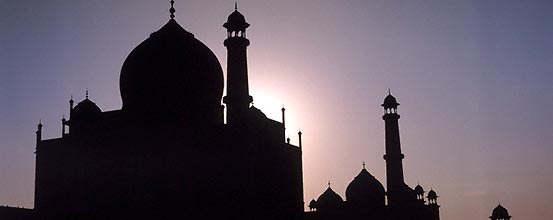» Ancient India » History of India
» Medieval India » Indian Cuisines
More About India..

» Bharatnatyam Dance
» Kathak Dance
» Kuchipudi Dance
» Odissi Dance
More Dances in India..

About India » Ancient India » History of India » Medieval India » Indian Cuisines More About India.. 
Dances
in India
» Bharatnatyam Dance » Kathak Dance » Kuchipudi Dance » Odissi Dance More Dances in India.. |
 |


Wildlife
in
India » Corbett National Park » Bandhavgarh National Park » Ranthambore National Park » Kanha National Park More Wildlife in India.. 
Indian City Guide
» Agra City Guide » Delhi City Guide » Jaipur City Guide » Leh City Guide More Indian City Guides.. 
Special
Attractions in India
» Adventure in India » Ayurveda in India » Wildlife in India » Yoga in India More Attractions in India.. 
Rajasthan Tour Packages
» Fascination Rajasthan » Rajasthan Desert Tours » Rajasthan Wildlife Tours » Rajasthan Treasure Hunt More Rajasthan Packages.. 
Special Tour Packages
» Discover Kerala » Best of North India » Kerala Pilgrimage Tour » Taj Mahal Holiday More Special tour Packages.. |
Home :: About
India :: Governments of India
Governments of IndiaNehru became the first Prime Minister of India
on 15th August 1947 at the head of a Congress government. Nehru governed India
until his death and Lal Bahadur Shastri succeeded him as Prime Minister of India
in 1964. He successfully repulsed Pakistan's twin attack on India-in the Rann
of Kutch and in Kashmir. After India-Pakistan War of 1965, Shastri met in Tashkent
with Pakistan's President and signed a “no-war” declaration. After Shastri's death he was succeeded by
Nehru's daughter, Indira Gandhi. She rode a wave of success in1971 with India's
victory in the second Indo-Pak war (1971), resulting in East Pakistan becoming
the separate nation of Bangladesh; launching of the India's first satellite
into space (1975), nuclear explosion in Pokhran (1974). Other major decisions
during her tenure include the nationalization of banks and the abolition of
privy purses to the princes. In her attempt to control population growth, she
implemented a voluntary sterilization program. But her adversaries criticized
it. In 1975, beset with deepening political and economic problems, Mrs. Gandhi
declared a state of emergency and suspended many civil liberties. The Emergency
was a dark night in Indian democracy.
|
|
|